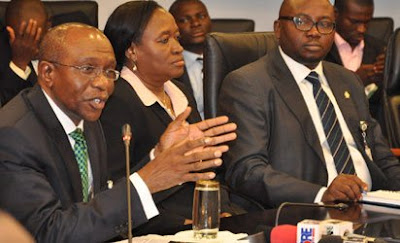The President noted during the just-concluded Presidential media chat that there was no strong conviction on the need to devalue the Naira and therefore, would not support devaluation, a position which is in alignment with the stance of the Central Bank of Nigeria. President Buhari pointed out that he needs to be convinced that there is need for the country to devalue the Naira, while stressing that Nigeria, as a nation, has foreign exchange policy priorities, which is to provide money to fund the projects which the CBN has highlighted and not to waste the nation’s resources on those who want hard currency to import textile and toothpick.
In the same vein, Managing Director/ Chief Executive Officer, Financial Derivatives Company Limited, Mr. Bismarck Rewane also supports the CBN’s flexible managed floating rate, which is a band within which the exchange rate will move. However, he noted the exchange rate improvement depends largely on improvements in Nigeria’s productive capacity through improved oil prices, production and exports. These conditions are expected to create positive appreciation of the value of the Naira against other currencies.
He warned that if these parameters depreciate, the naira will also depreciate. Rewane, also expressed strong opposition to naira devaluation, stating that what Nigeria is witnessing is adjustment of the rate in response to the set parameters.
He revealed that the economy has depreciated sharply, therefore, downward adjustment of the naira is inevitable, “it is not what we wish to have, but that it is what we have to do. What the CBN has been doing is to manage the circumstances within the limited resources that we have, there has been rationing and other monetary control measures, all these are indications that what is available is not what is required, and therefore it is important to manage it in an orderly manner.”
He also clarified the difference between exchange rate uncertainty and exchange rate risk. He stated that risk and uncertainty are not the same thing. “Risk is the probability that something negative will happen, and uncertainty means you do not know what is going to happen. So in 2016, Nigeria will be moving from uncertainty to an environment of low moderate risk.”
Another leading economist, Dr. Biodun Adedipe, has also stated that Nigeria’s economic problem is not the naira dollar exchange rate.
According to him, the problem is the supply problem. The people wants to get goods and Nigeria is not producing enough to meet local demand. Therefore, the people will have to import and that means pressure on the naira and invariably, the naira dollar exchange rate.
“Therefore, the Central Bank of Nigeria, in my own view, has performed excellently well by placing capital control on foreign exchange. This, however, should have a set period to encourage all stakeholders to support the initiative. “In respect of capital controls, I am firmly in support of the Central Bank of Nigeria. This is the logic, and we have a reference in history. What Malaysia did in 1997, when they found themselves in the situation, Nigeria has found itself doing the same today.”












No comments:
Post a Comment
Your comment here